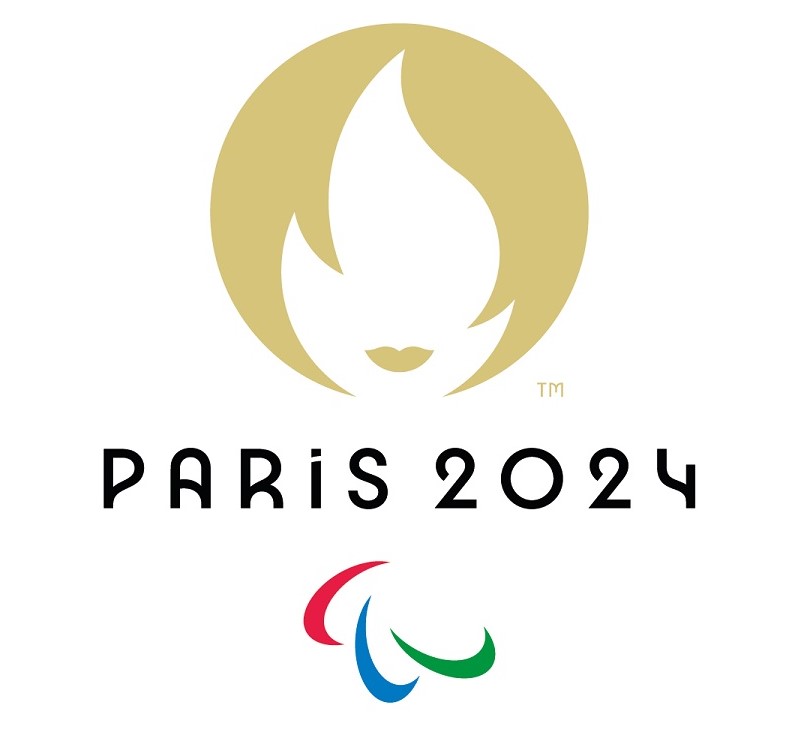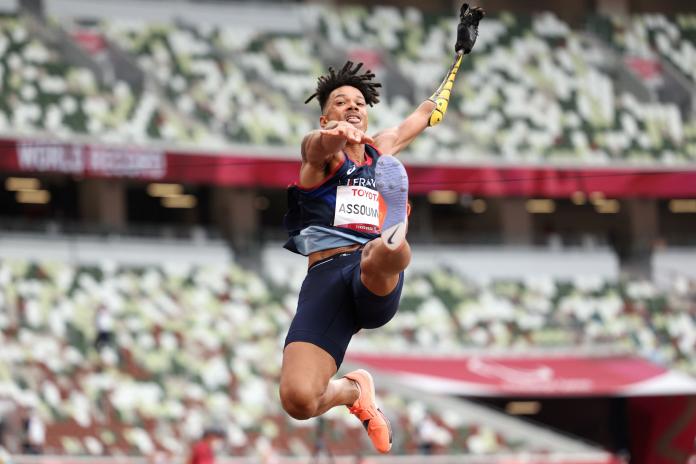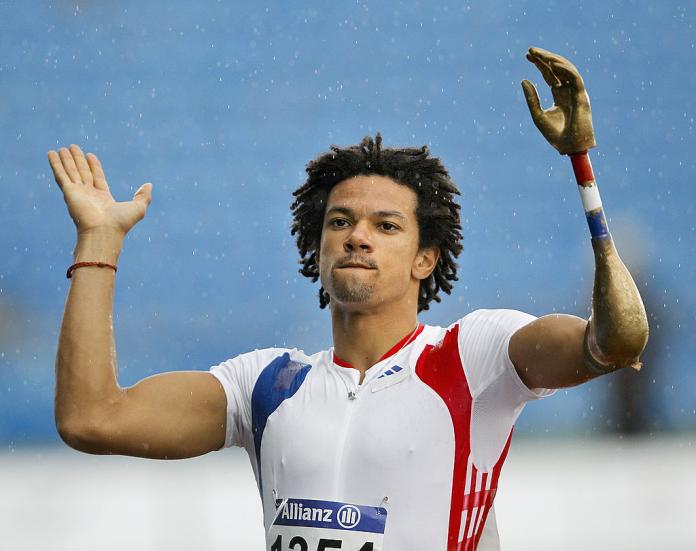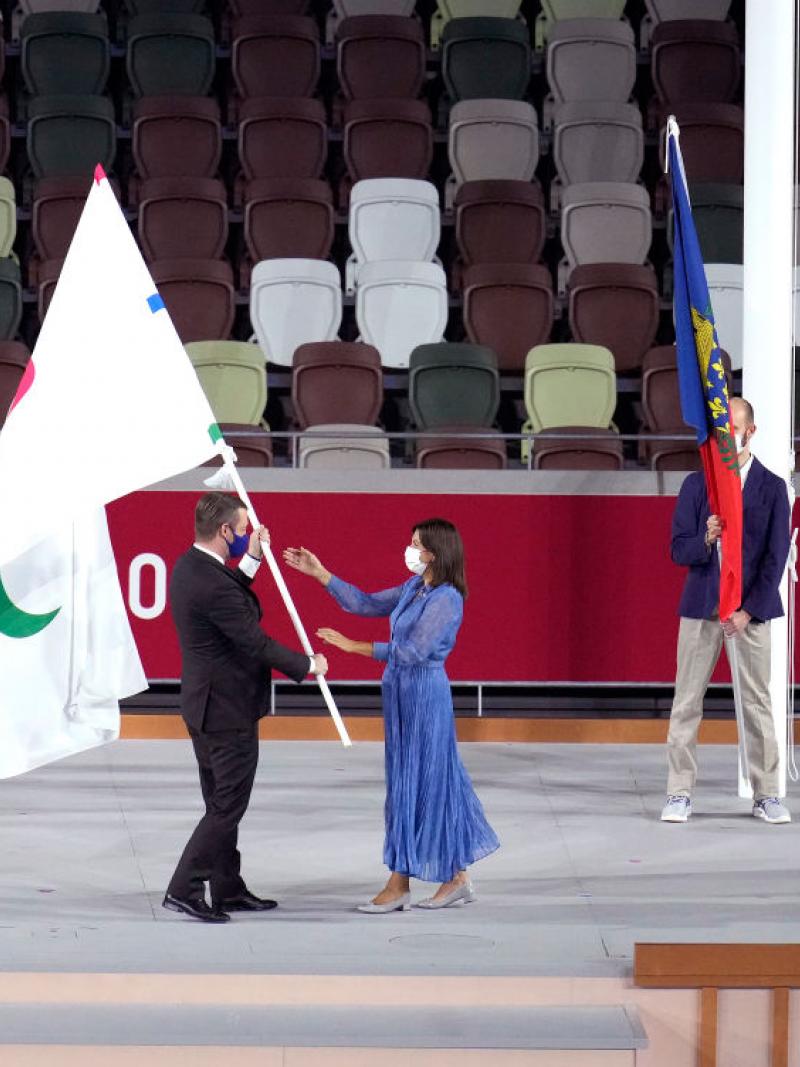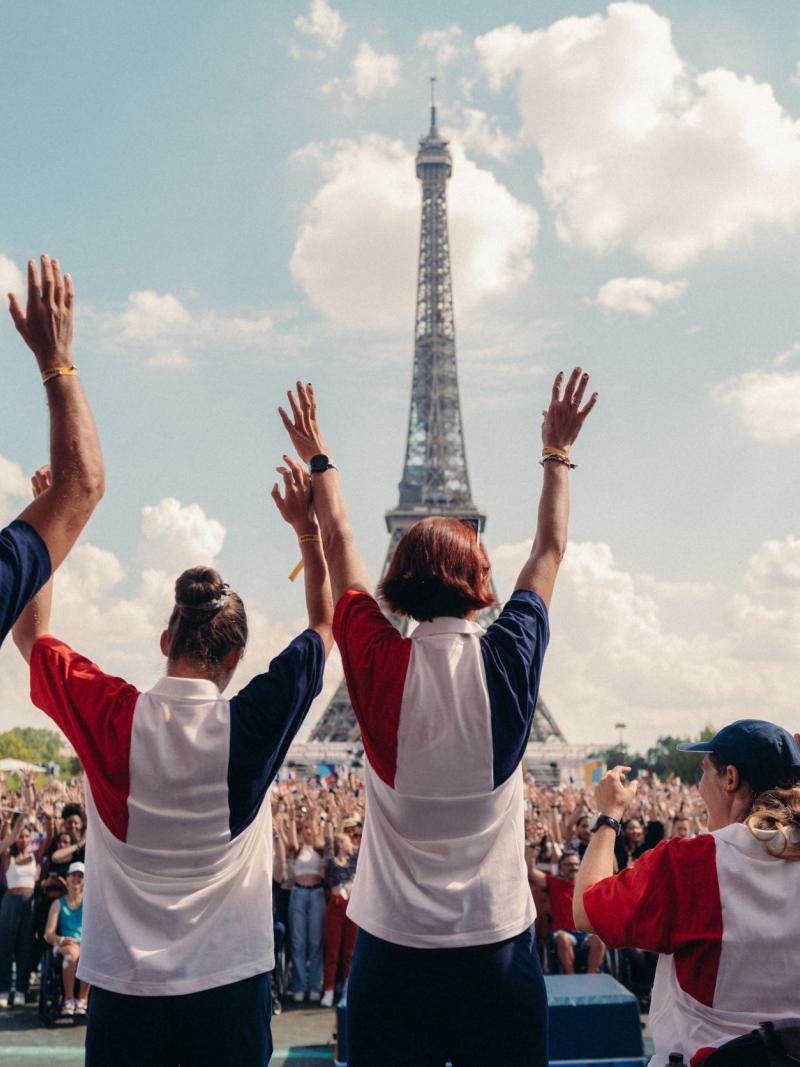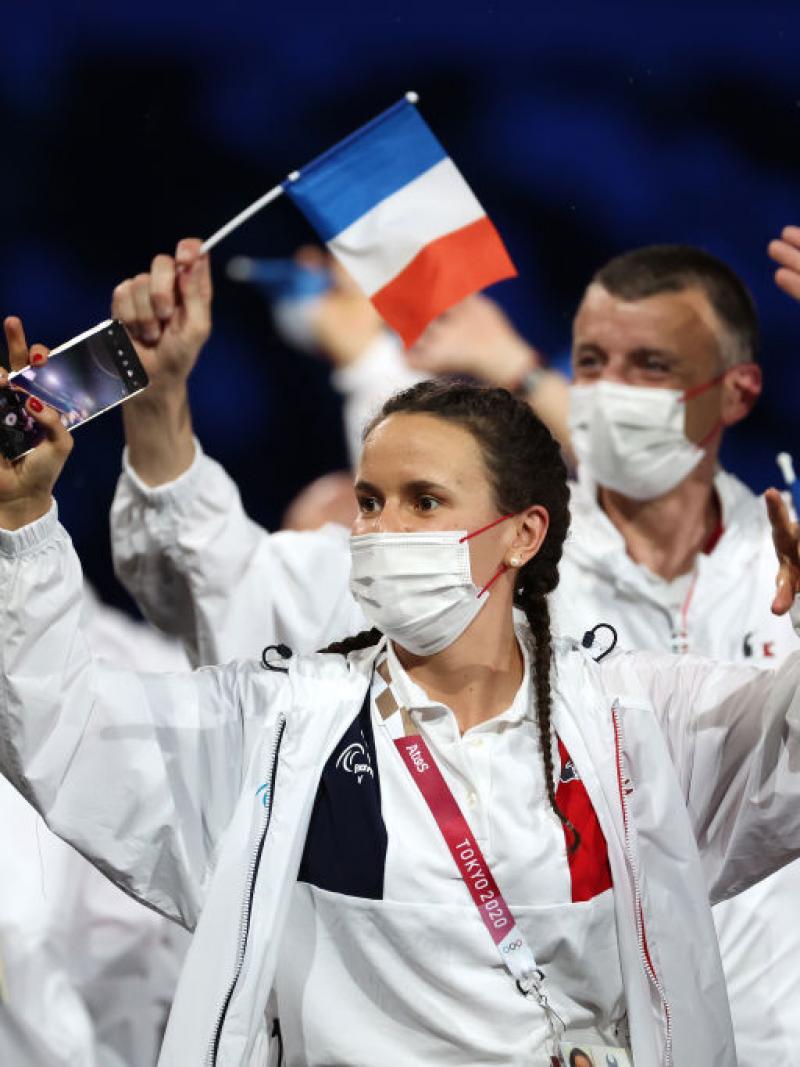Paris 2024 Ambassador Assoumani: "It's really ambitious, but we need to be ambitious"
Twenty years after making his Paralympic debut at Athens 2004, long jumper Arnaud Assoumani is hoping to compete – and win – at his home Paralympic Games in Paris 28 Aug 2022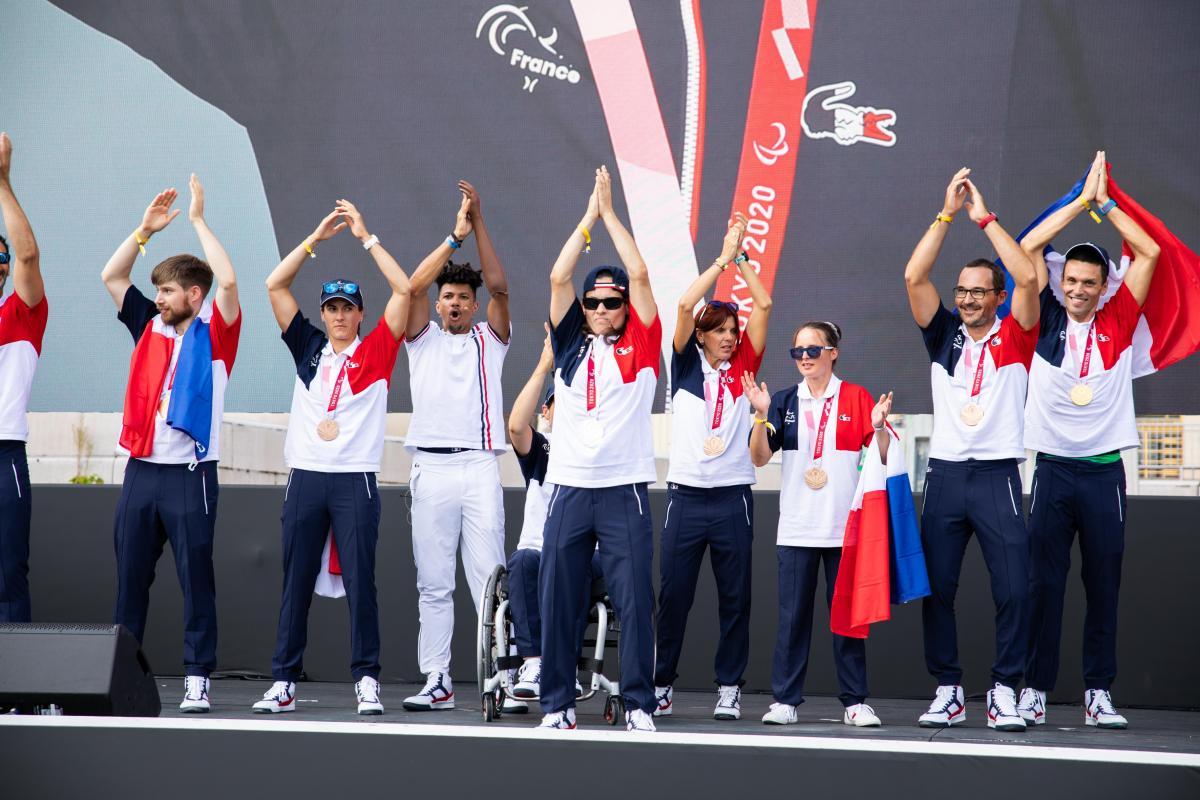
Each of the five Paralympic Games long jumper Arnaud Assoumani has competed in came with its own milestone.
At Athens 2004, he made his Paralympic debut and won his first medal, a bronze in men's long jump F46. At Beijing 2008, he upgraded that medal to gold. At London 2012, he came away with two medals and unforgettable memories of packed stands and enthusiastic spectators.
He won another bronze, danced and satisfied his long-time love for Brazilian culture at Rio 2016, and fought his way to Tokyo 2020 despite a global pandemic.
While all the Games had highlights of their own, even with two years left until the Opening Ceremony, Paris 2024 already stands out as the most special Paralympics for Assoumani.
Aside from aiming to win gold on home soil, the Paris 2024 Ambassador is eager to spread a message of inclusion that will resonate long after the cauldron flame has gone out.
“Participating for the sixth time in the Paralympic Games, I have huge goals as well, but it’s more about being part of it and being a voice,” Assoumani said. “I have a responsibility and I have felt that since a few years back now.”
A new motivation
Assoumani, now almost 37 and with five Paralympic medals to his name, has thought about retiring from sport, especially during the difficult journey to Tokyo when athletes had to train amidst a pandemic.
The thought of competing at home kept him motivated, however, and even more so, the impact he thought he could have on French society.
“I didn’t expect to have an athletic career this long. I thought I would have finished a few years back already, but the meaning (of it) changed on the way,” Assoumani said.
“For me the main motivation is to be able to change things for society through sport,” he explained. “Because of the things that I experienced myself as an athlete, the things that I saw and felt as a Paralympic athlete, with discrimination, not enough equality, I thought that it could be a really good tool to be able to change the perception of disability and to raise awareness on those topics.”
Assoumani, who was born without a lower left arm, tried to qualify for both the Olympic and Paralympic Games at London 2012. While he narrowly missed qualification for the Olympics, his attempt gave him the spotlight he needed to talk about inclusion and disability.
“The message was already the same as today. It was to say, it’s not because you have a disability that you are not a human being. It’s crazy and it’s trivial to say that, but I felt that when you have a disability, it could be seen as an identity and I really fight strongly against that,” Assoumani said.
“I relate a lot to the #WeThe15 campaign where you are like every other citizen,” he added. “I’m pretty much with this message: How can sport be an engine, a tool, a catalyst for accelerating the change in society about adaptation, the access to sport, the access to culture, the accessibility of transport and the view people have of disability? The Paralympic Games in 2012 in London are a great example. They changed so much in England and in all of the UK in the society and it’s because of just one event.”
Eager to spread his message of inclusion, Assoumani regularly goes to schools to talk about stereotypes related to disabilities.
He encourages schoolchildren to ask questions and no topic is off limits.
“We need to talk about it. That’s really important. Especially in a society where everything goes fast and we don’t take the time to discuss that much, it’s even more important for the new generation,” Assoumani said.
The French athlete has also, on two occasions, asked the public to create a new graphic design for his prosthetic arm as a way to help people connect more with the Paralympic Movement.
The first design, which he used during his competitions at London 2012, was a golden pattern that got him the nickname “Golden Arm”. In the summer of 2021 Assoumani launched a similar contest, now requesting a design he will compete with at his home Games.
He has now settled on the winner and plans to reveal the new prosthetic later this season.
A tale of two cities
Of the five Paralympic Games he has competed at so far, Assoumani was most impressed with London 2012 where he says Para sport truly came into the spotlight.
While he recognises the challenges that lie ahead, Assoumani believes that Paris 2024 should strive to reach similar heights.
“We are in a different period, we are on a different path and we have our culture in France as well, which is not the same as the English culture, which is maybe a bit more open-minded to change or can change faster, so I hope that we’ll be able to do as good as London and I’d like for Paris 2024 to have a stronger impact," the 2024 Games Ambassador said. “I don’t know if it could be bigger (than London 2012). If it will be the same, it would be perfect."
The Paris 2024 Organising Committee has already set big goals for the Games that go beyond the sporting arena. There are initiatives to encourage more people to take up sports recreationally, increase the accessibility of French cities, and make the Games more environmentally friendly.
“There is one part, which is going to be a spectacular party. It’s going to be mind-blowing for the athletes and for the public, I’m sure of that,” Assoumani said. “Then, for the other part, it’s really ambitious, but it’s good. We need to be ambitious with all the problems we live with.”
What makes Paris 2024 stand out as well, Assoumani said, is the definite French flavour the Games will have. Many Paralympic events will be held at iconic Paris venues, such as the Grand Palais and the Invalides.
At the Olympic and Paralympic Village, the athletes will be served their meals in the film studio complex Cite du Cinema.
The 2024 Paralympics are also expected to have greater reach within French society. There will be a record 3.4 tickets going on sale for Paralympic competitions with many affordable options, starting at 15 euros, on offer. In addition to that, Paris 2024 will receive record broadcast coverage.
“The media coverage, it’s going to be really new for us because we’re going to have more than 300 live hours on France Television. That’s not something we are used to because for Rio and for Tokyo, it was 100 hours live, so triple that,” Assoumani said.
“I personally really want to put the pressure on France Television because they have to do a great job. London did a tremendous job in 2012 and we wanted to win those Games at that time. I think we were not ready. I’m sure we are ready now.”




